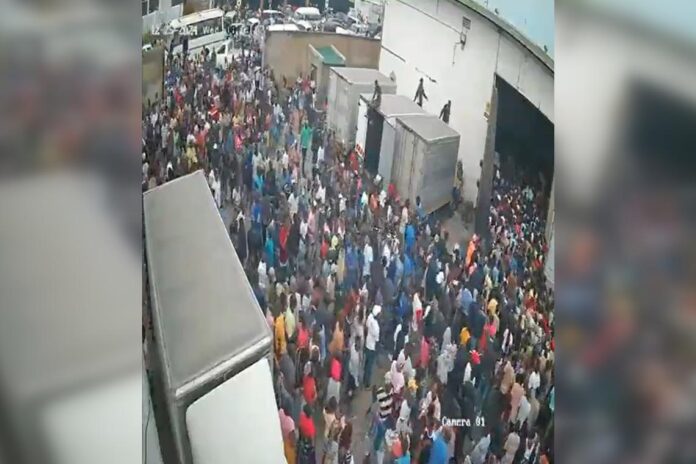A wave of unrest in Mozambique, sparked by the controversial confirmation of Frelimo's election victory, culminated in a catastrophic prison break on Christmas Day.
Over 1,500 prisoners escaped from a high-security penitentiary near Maputo, resulting in deadly clashes between inmates and authorities.
The scale of the escape was confirmed by National Police Chief Bernardino Rafael at a press conference. He revealed that a total of 1,534 detainees escaped the prison, located approximately 15 kilometers from the capital.
The escape was facilitated by a combination of external protests and internal unrest, leading to the inmates breaching a prison wall.
The chaos resulted in a violent confrontation between fleeing prisoners and prison staff.
"Among those attempting to escape, 33 were killed and 15 were wounded in clashes with prison staff," Rafael stated.
A subsequent search operation, supported by the army, led to the recapture of approximately 150 fugitives.
The timing of the prison break coincided with the third day of civil unrest triggered by the confirmation of Frelimo's victory in the October 9th presidential election. The country's highest court upheld Frelimo's win on Monday, despite widespread allegations of electoral irregularities. This decision reignited weeks of protests and demonstrations across the country.
The unrest has been linked to the disputed election results. Frelimo leader Daniel Chapo secured 65.17% of the vote, a result that has been met with skepticism by many observers and outright rejection by opposition leader Venancio Mondlane, who claims the election was rigged. These claims have fuelled tensions and fears of escalating violence between rival party supporters.
"We are particularly concerned about this situation," Rafael said, highlighting the gravity of the situation. The escape involved approximately 30 prisoners linked to armed groups operating in the northern province of Cabo Delgado, raising concerns about potential further unrest and violence.
The scenes in Maputo on Wednesday reflected the ongoing turmoil. Barricades obstructed movement in several areas of the capital, while acts of vandalism continued. This followed the ransacking of shops and public buildings on Monday, along with the destruction of ambulances, a pharmacy, and other businesses, as reported by an AFP correspondent.
In a stark contrast to the violence, an AFP journalist observed some demonstrators setting up tables in the streets, celebrating Christmas with family and neighbours in working-class districts. This juxtaposition of celebration and unrest highlights the complex and deeply divided nature of the situation in Mozambique.
The government's handling of the election results has been heavily criticised. The confirmation of Frelimo's victory, despite claims of irregularities, has only served to exacerbate existing tensions. Reports from several non-governmental organisations indicate that at least 150 people have died as a result of the ongoing unrest.
Justice Minister Helena Kida offered a differing account of the prison riot's origins to local broadcaster Miramar TV. While Rafael attributed the riot to external protests, Kida claimed the unrest began within the jail itself, independent of the demonstrations outside.
"The confrontations after that resulted in 33 deaths and 15 injured in the vicinity of the jail," Rafael clarified during a media briefing.










